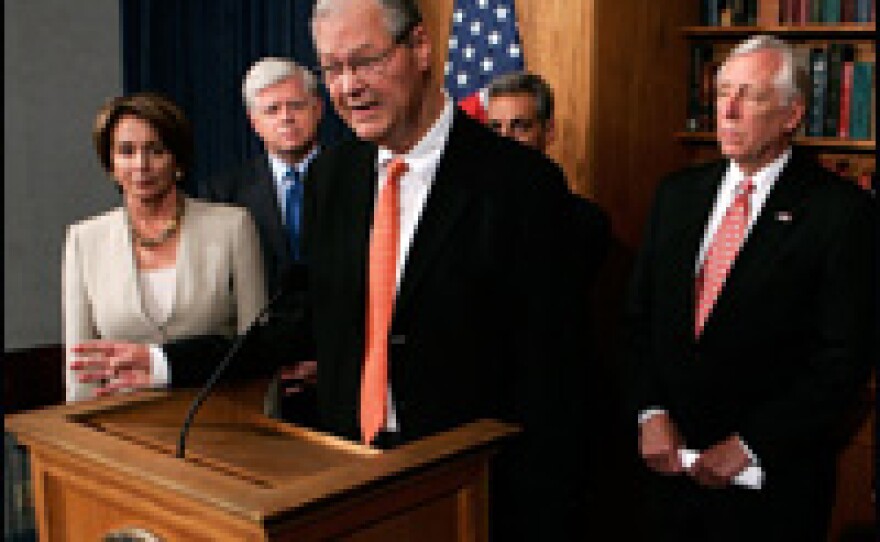House Democrats defied a certain presidential veto and approved an Iraqi troop-withdrawal measure just hours after the White House released a report finding the Baghdad government has failed to meet several key benchmarks.
The House voted 223 to 201 to have U.S. troops out of Iraq by April.
Rep. James Moran (D-VA) said the measure was necessary because the current policy in Iraq is "leading us down a dead-end street."
Republican Marsha Blackburn of Tennessee said the vote sends the message that the U.S. "is weak in the war on terror."
The vote was mostly along party lines. Only four Republicans voted for it and ten Democrats opposed it.
The Senate is expected to vote next week on a similar measure, but it is unlikely to survive. And if it were to reach the White House, it faces a certain veto by President Bush.
Earlier Thursday, the president defended progress in Iraq and pleaded for more time.
"Those who believe that the battle in Iraq is lost will likely point to the unsatisfactory performance on some of the political benchmarks. Those of us who believe the battle in Iraq can and must be won see the satisfactory performance on several of the security benchmarks as a cause for optimism," Mr. Bush told reporters at the White House.
Mr. Bush said trying to run a war through resolution was a prescription for failure.
"I'll work with Congress. I'll listen to Congress. Congress has got all the right to appropriate money, but the idea of telling our military how to conduct operations, for example, or how to, you know, deal with troop strength is, it's, I don't think it makes sense," he said.
In the House, the measure calling for withdrawal prompted charged partisan debate. Georgia Republican Tom Price said the bill was nothing but political pandering by Democrats.
"Clearly, this bill was not written in response to what our generals think, whose interim report was released just hours ago," Price said. "Instead, it was written in reaction to polls and to pressure from moveon.org. And others."
But Georgia Democrat John Lewis said the measure was a step that would, as he put it, "end the madness in Iraq."
"How many more of our young people must die before we realize enough is enough," Lewis said. "One more day, our involvement — it's too many. One more death is one too many. This war is not worthy of another drop of human blood."
The report released by the White House Thursday cited measured progress on the economic front in Iraq. "Unemployment has eased slightly and inflation is currently abating," the report
said. It omitted mention of a June 1 Pentagon report estimating an annual inflation rate at 33 percent and the Iraqi government estimate of joblessness at 17 percent.
In an evident jab at critics of Bush's war policies, the report also said progress toward political reconciliation was hampered by "increasing concern among Iraqi political leaders that the United States may not have a long term-commitment to Iraq."
Despite rising pressure from Republicans in Congress for a change in course, Bush was adamant.
"When we start drawing down our forces in Iraq, it will (be) because our military commanders say the conditions on the ground are right, not because pollsters say it'll be good politics," he said.
From NPR reports and The Associated Press
Copyright 2022 NPR. To see more, visit https://www.npr.org. 9(MDAzMjM2NDYzMDEyMzc1Njk5NjAxNzY3OQ001))






